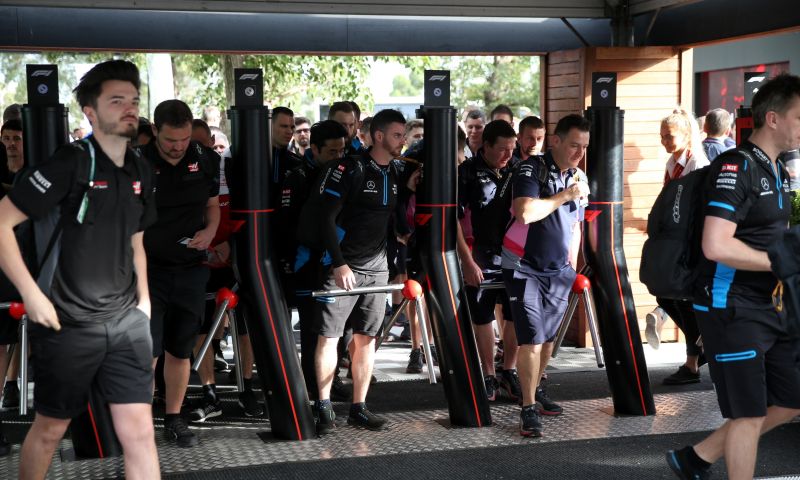Column

Column: Sport is not 'just a game' and can't wait for the coronavirus
- GPblog.com
When do we start again? It's the question that keeps many Formula 1 fans busy. In Germany football teams are already on the training field and in Austria the corona measures are already being relaxed. A matter of time before we start with Formula 1?
It's just a game
A much-heard argument on television and especially in talk shows, is every time it's just a game. Whether it's Formula 1, football or cycling. The problem, however, is that it is no longer a game. You're crazy if you compare this to a family game or an outing on the beach, because in today's sport there's a lot more at stake.
Formula 1 is not just about the drivers. Of course they make a lot of money and they are certainly not the ones we should feel sorry for. The same goes for top footballers and the top athletes of any other sport. However, top sport does not only accommodate top athletes, but also many other employees.
Think of all employees within the teams and within Formula 1 who normally live from the sport. Whether it's the engineer, the mechanic, the landrywoman, the photographer or the one who flouts the windows of the factory, everything comes to a standstill and that costs jobs. In the same way that people are looking for solutions for restaurants and schools, they also have to look for a solution for top sports.
I'm not talking about the football clubs around the corner, because recreational sports, amateurs and youth can wait a while. There are no jobs at stake there, but at most a few fanatical volunteers who would like to get back on the pitch to start (according to this fanatical youth trainer).
Top sport is work
Ultimately, it's about the jobs and top-class sport has become work in modern times. So where we are looking for opportunities to open up the hospitality industry and schools again to give the economy and children a helping hand, we also have to think of jobs in sports. In Germany people already speak of a football season start without an audience and UEFA wants to continue playing football as soon as possible, but what does Formula 1 want?
The advantage of Formula 1: You don't have to spend weeks in a training camp to get the drivers fit again, they can get back to work reasonably quickly. The factories will have to start up again and the staff will have to income for a while, but in principle the F1 itself could start fast. It is therefore a big advantage that the organization has been given a free hand to plan the calendar more flexibly.
Saving the sport
Teams and organization must now be rescued and a fast season start is essential. The longer the sport stands still, the more teams will fall. Skipping a year is therefore not an option, because then we will start 2021 with three teams. Things have to change and that requires a good plan.
Formula 1 will drive the first races, and maybe even more, without an audience. It has to be. Before we can start with an audience, the sport is already bankrupt. For organizers of the Grands Prix this is certainly not ideal, because they normally have a whole weekend to provide income for this event. On the other hand, they will be happy to organize the race as the tickets have already been sold. Having to pay back all of them also means bankruptcy for nine out of ten organisations.
It is time to think in solutions and not in problems. During the coronavirus, how can one ensure that sports don't go bankrupt? Racing without an audience is the motto, with thorough testing before entering the paddock, as Ross Brawn himself pointed out. Once the whole circus is virus free and can start in isolation, there is nothing that can stop F1 from becoming a great success.
It's not about the fan who wants to see a game, it's not about the athlete who gets bored, but about saving the thousands of jobs and businesses (which have become clubs, teams and sports organisations) that are on the verge of falling over. Racing without an audience is not fun and certainly not ideal, but it is the best solution there is in the current circumstances.
The original article appeared earlier on the Dutch website of GPblog.com, and was written by Tim Kraaij

